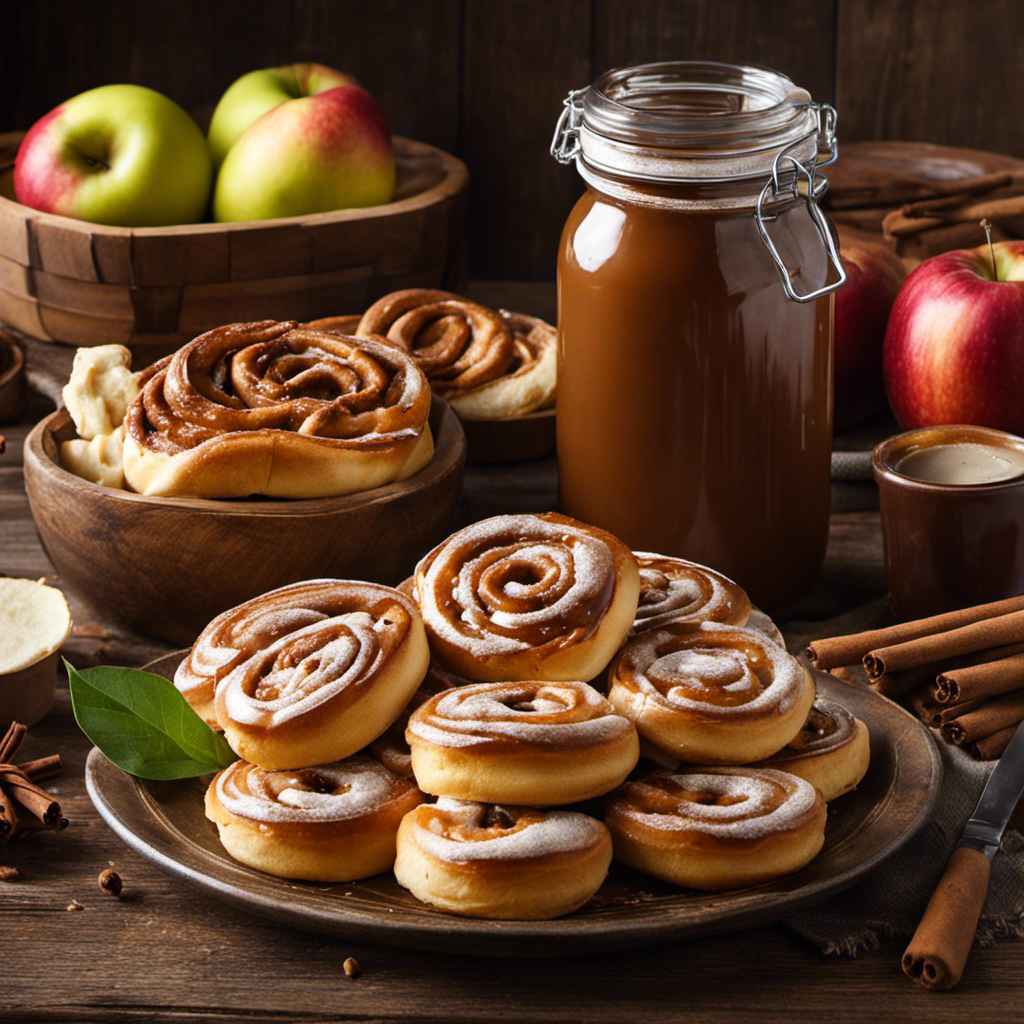When it comes to butter, salt is essential for flavor and texture. Sea salt offers a complex briny flavor with a delightful crunch, while rock salt adds a rustic richness with its coarser texture. Flake salt, on the other hand, dissolves quickly, providing a subtle salinity that enhances the butter’s creaminess without overpowering it. Each type brings its own unique qualities to your culinary creations. There’s more to explore about how these salts can elevate your butter experience.
Key Takeaways
- Sea salt enhances butter with complex flavors and a crunchy texture due to its trace minerals.
- Rock salt provides a robust, rustic flavor, ideal for hearty butter applications.
- Flake salt offers a light, delicate texture that dissolves quickly, enhancing subtle flavors in butter.
- Each salt type significantly influences the sensory experience when consuming butter.
- Choosing the right salt can elevate butter’s quality and overall culinary outcome.

When you think about butter, you might not realize how much the type of salt used can influence its flavor and texture. Salt isn’t just a seasoning; it’s a catalyst for flavor enhancement that can elevate your butter from ordinary to extraordinary. Different types of salt impart unique characteristics, impacting how you experience the creamy goodness of butter. Whether you’re spreading it on toast or using it in cooking, the choice of salt can play a vital role.
The type of salt you choose can transform butter, enhancing its flavor and texture in delightful ways.
Sea salt, for instance, is harvested from evaporated seawater and often contains trace minerals that can enrich the butter’s flavor. These minerals not only contribute to a more complex taste but can also provide health benefits. Sea salt’s larger crystals can create a delightful crunch when sprinkled on top of butter, giving your palate an exciting contrast in texture. When you taste butter made with sea salt, you might notice a briny depth that makes it particularly satisfying. It’s not just about seasoning; it’s about creating a richer experience.
Rock salt, on the other hand, is mined from salt deposits and typically has a coarser texture. It’s often used in industrial settings but can be found in gourmet applications as well. Because rock salt tends to be less refined, it retains more of its mineral content, which can add a robust flavor to your butter. If you’re looking for a more rustic taste, butter made with rock salt can be an excellent choice. The coarser grains can also provide a unique mouthfeel that contrasts nicely with the creaminess of the butter.
Flake salt is another popular choice, known for its light, flaky texture. It dissolves quickly, making it an excellent option for delicate dishes. The flavor enhancement it offers is subtle and sophisticated. When used in butter, flake salt can add a hint of salinity without overpowering the creamy notes. It’s often favored by chefs who want to elevate their dishes without drawing attention away from the primary ingredients.
Ultimately, the type of salt you choose to mix with your butter can profoundly affect the overall experience. From the complex flavors of sea salt to the robust character of rock salt and the delicate touch of flake salt, each option brings its unique flair. Additionally, using a HEPA filtration system in your kitchen can help ensure that the air quality remains optimal while cooking, enhancing your culinary experience. So next time you reach for butter, consider the salt; it could make all the difference in your culinary creations.
Frequently Asked Questions
Can I Use Table Salt Instead of Specialty Salts in Butter?
Yes, you can use table salt instead of specialty salts in butter, but it might not give you the same depth of flavor. Table salt substitutions are convenient, but you might miss out on the unique benefits specialty salts offer, like texture and nuanced taste. If you’re after a specific flavor profile, consider experimenting with those specialty options. Otherwise, table salt will still create a delicious butter that works well in most recipes.
How Does Salt Affect the Shelf Life of Butter?
Salt acts like a time capsule for butter, preserving its freshness. It slows down spoilage by promoting salt crystallization, which helps inhibit bacterial growth. You’ll notice that butter with higher salt content retains moisture better, extending its shelf life considerably. So, when you sprinkle that pinch of salt, you’re not just adding flavor; you’re giving your butter a longer lease on life, making it a smart choice for your culinary creations.
Is There a Difference in Taste Between Salted and Unsalted Butter?
Yes, there’s definitely a difference in taste between salted and unsalted butter. Salted butter offers flavor enhancement, adding a savory element that can elevate your dishes. Unsalted butter, on the other hand, provides a more pure, creamy taste, allowing the natural flavor of the butter to shine through. You’ll also notice textural differences; salted butter can feel slightly grainy due to the salt crystals, while unsalted butter has a smoother consistency.
What Is the Best Salt to Use for Baking With Butter?
Choosing the best salt for baking with butter is like picking the right spice for a dish—it can make all the difference. For flavor enhancement, consider using fine sea salt, as its smaller granules dissolve easily, ensuring a balanced taste in your baked goods. It blends seamlessly into butter, allowing the flavors to shine. Coarse salts can leave an unpleasant crunch, so stick with fine sea salt for the best results.
Are There Health Differences Between Types of Salt in Butter?
Yes, there are health differences between types of salt in butter. Sea salt often contains trace minerals, which can offer some health benefits, while table salt usually has added iodine. Rock salt may be less processed but often lacks those minerals. The health implications mainly revolve around sodium intake and the mineral content, which can affect your overall health. Choosing the right salt can enhance flavor without compromising your health.
Conclusion
When it comes to butter, the type of salt you choose can make a world of difference, much like the right seasoning can elevate a dish to culinary heights. Sea salt offers a burst of flavor, rock salt provides a classic touch, and flake salt adds a delicate crunch. Experimenting with these varieties can transform your butter from ordinary to extraordinary. So, go ahead and savor the nuances each salt brings to your butter creations!









